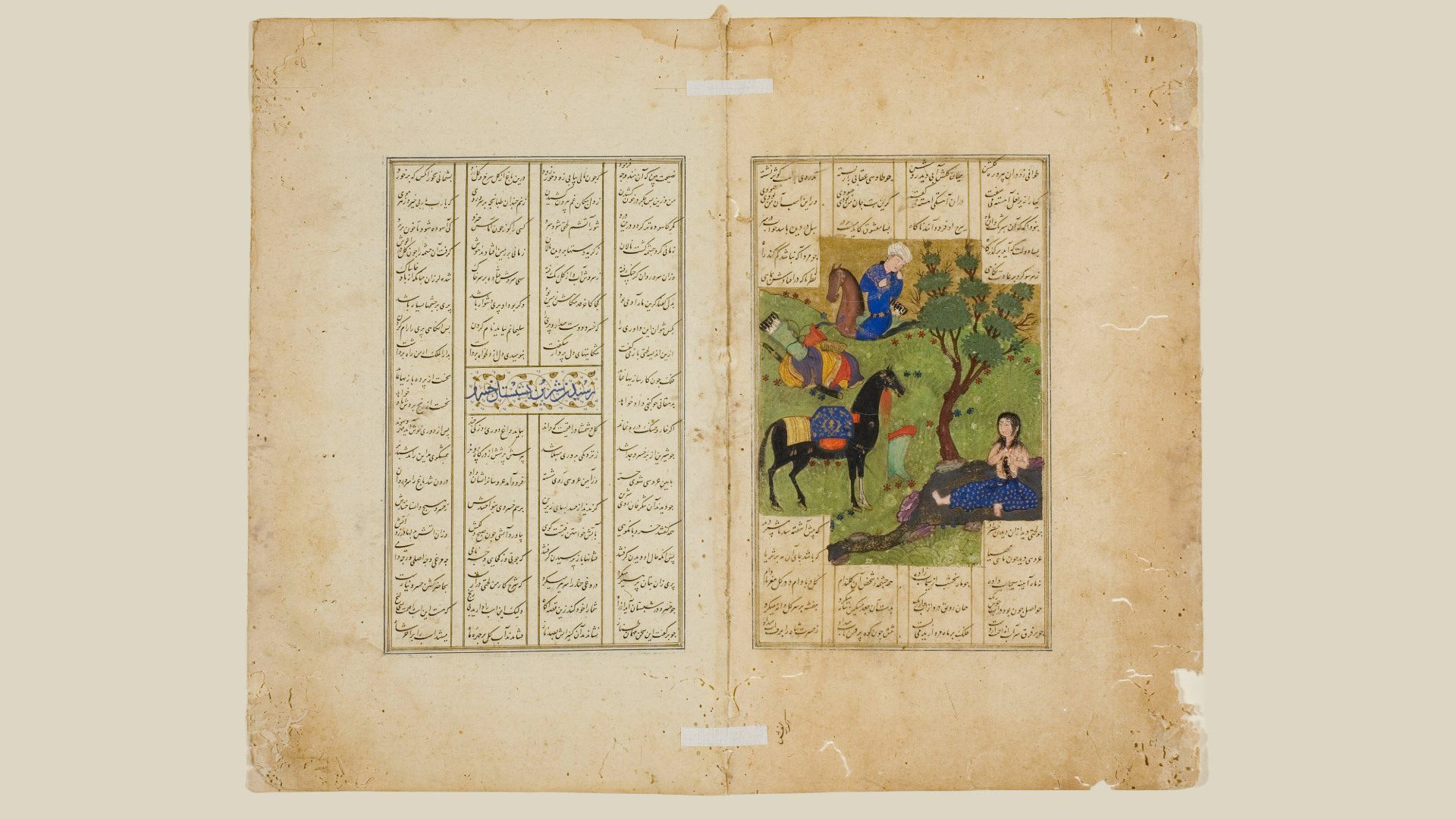- October 02, 2025
- By College of Arts and Humanities Staff
The University of Maryland’s Roshan Institute for Persian Studies has received a major new gift to establish the Dr. Elahé Omidyar Mir-Djalali Persian Digital Library (EOMPDL) to preserve, study and share Persian literary heritage.
The gift comes from the Roshan Cultural Heritage Institute, a private foundation created by Mir-Djalali, a distinguished linguist, educator and philanthropist dedicated to the preservation and global celebration of Persian language, literature and heritage.
Funded by a $1.5 million endowment and $310,000 in startup funds, the EOMPDL will be the first open-access Persian digital library to feature texts that have been professionally edited and vetted by scholars. Building on UMD’s internationally recognized leadership in Persian digital humanities, the initiative will provide free, global access to a constantly expanding body of classical and modern Persian texts. The project will also partner with institutions to help safeguard thousands of at-risk manuscripts and rare books from collections in India, Pakistan and beyond.
As such, the initiative will serve as a hub for training a new generation of digitally fluent Persian scholars, with access to previously inaccessible Persian manuscripts and printed books.
"Thanks to this generous support, we are poised to dramatically expand access to Persian literature and create a sustainable future for Persian digital humanities," said Stephanie Shonekan, dean of UMD’s College of Arts and Humanities. "This investment will inspire the next generation of scholars and attract the brightest minds to contribute to this important work, ensuring that this rich cultural legacy remains accessible for generations to come."
A 2007 gift from Mir-Djalali enabled the establishment of the university’s Roshan Institute, which has emerged as a global leader in the field of Persian digital humanities. It developed the first major corpus of Persian texts prepared using internationally recognized standards for digital editing and markup. It also created critical digital tools for researchers, including open-source software and digitized collections.
Supported by nearly $3.25 million in grants from the Mellon Foundation, the U.S. National Science Foundation and the National Endowment for the Humanities, UMD researchers have revolutionized the use of open-source optical character recognition and handwritten text recognition technologies for Persian texts, which allow users to automatically extract digital texts from scanned images of books or manuscripts. UMD scholars have also spearheaded collaborative projects with universities, libraries and cultural institutions around the world to digitize endangered Persian manuscript collections.
“We are delighted with this additional field-building gift in recognition of the institute's achievements in Persian digital humanities and other academic domains,” said Fatemeh Keshavarz, the Roshan Institute’s chair and director.
Matthew Thomas Miller, assistant professor of Persian literature and digital humanities, will lead the creation of the EOMPDL. He has spearheaded Persian digital humanities work at the Roshan Institute since 2015.
"We are opening a new chapter in the preservation and study of Persian literature," Miller said. "Ultimately we aim to foster deeper appreciation and understanding of Persian culture and ensure its treasures are preserved for future generations."
Topics
Campus & Community